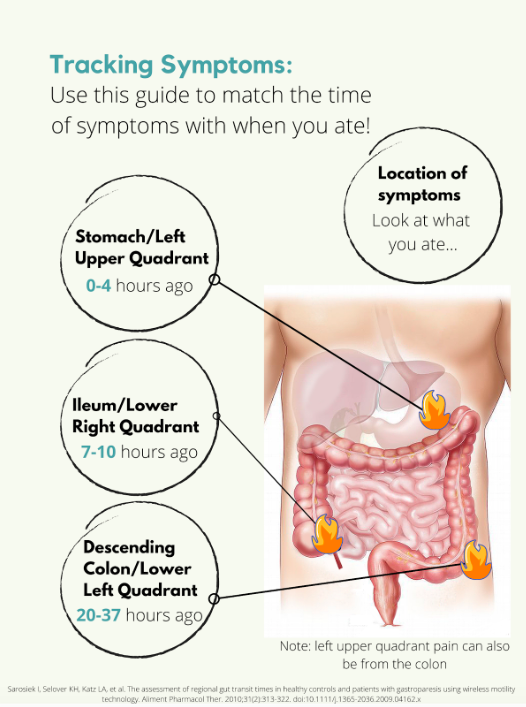Recently, one of HONY’s long (12-part) post blew up, allowing another miracle to be added to the community’s ever-growing testament to human generosity and compassion. The posts follow the journey of Cristy’s Kitchen, through Cristy’s life, roles and perspective. A mother to 5 girls, she started experimenting with food recipes only when her first daughter started showing autoimmune illness signs as a teenager. It’s been made clear from her story that she first started her recipes, which have since garnered significant attention from many people all over the world, only because she wanted to help her daughters with their illnesses. Her life and actions speak of love, grit, determination, hope and faith, and I think some of us, as patients of autoimmune diseases, can relate to having people like her in our own lives, carrying us in our darkest moments.
Caregivers undoubtedly play an immense role in a patient’s life. It can be argued that for chronic conditions like IBD, personal relationships with family, friends and significant others can ultimately only last if the relations juggle their roles between being caregivers and their normal roles (father, mother, sibling, significant other, friend). The mix of the uncertain characteristics of chronic autoimmune conditions with the current overburdened healthcare systems across the globe, caregivers are the ultimate backbone that help people survive not only through the physical realities, but also through the psychological, emotional, and financial turmoil. Yet for all we say about invisible diseases, not much is said about this significant invisible labor. Caregivers not only help us, patients, but are the unacknowledged help to doctors and hospitals, when they help buy time for diagnosis, and take our rollercoaster up-and-down rides with us.
Caregivers: A South Asian Context
Generally, in south Asian communities, mothers already shoulder the huge burden of bringing up children and caring for their wellbeing, oftentimes even at the cost of their own health. For young adults with IBD in India, the role of the mother as a prominent caregiver is heightened and intensified for two main reasons: (1) overburdened private and public healthcare systems, (2) lack of mental health normalization and support infrastructure. It is also important to acknowledge, however, that prominent caregivers can also be fathers, older siblings and other family members just as much as mothers. It is normalized to blame these caregivers, more often than not mothers, for any “defects” that a child may have, whether that is due to the child not adhering to the community’s rules, or because the child is unable to perform in a way that the community deems fit. IBD and autoimmune conditions from a south Asian lens is widely considered a fault, and one that cannot be tolerated to come out of nothing, leading to further the idea of blaming the mother for not doing enough and/or failing to stop the illness. However, as patients, we eventually come to accept and acknowledge the curious nature of autoimmune diseases (that they cannot be predicted, nor caused or solved), and we witness not only our grit during hopeless times, but also frequently, the origin of that: the love, grit and hope our caregivers show. To have that labor and foundational support go unwitnessed and unpaid by the world around us is one thing, but hearing negative comments that place blame and point fingers is another.
In my personal circumstances, my mother was the first person I revealed my symptoms to, the only person to accompany me to every doctor’s appointment and lab appointment, and stayed awake with me on countless nights as I turmoiled through the pain and bathroom visits during my flare ups. She outstandingly also showed up when I took the decision to spend a year in rural India, with limited and chaotic bathroom, food and water provisions, riddled me through my bursts of insecurity, and stood as an unwavering pillar of physical and emotional support when I was hospitalized. I can say for certain that I only survived ulcerative colitis and my year in rural India because of her. In my sibling’s case, my father went above and beyond being his main caregiver, and at times, mine too. And yet, while I try to distance myself repeatedly from the guilt of having an illness that has no clear cause, I also deal with people blaming my parents, trying their hardest to find a recipient for the blame. It is heartbreaking.
These comments not only arise from common people, but can also show up in the tone and words from well-educated and trustworthy people, like doctors. While it may seem that the above actions are on the list of expected actions that a mother/caregiver has to carry out, it is important to highlight that it is absolutely not necessary and still constitutes labor and time that could be used elsewhere in return for payment. Additionally, from a productive economy/labor perspective, IBD patients are almost only “productive” to the economy due to the invisible support of their caregivers. This is yet another reason that begs policymakers over the globe to consider the unique circumstances of patients of chronic autoimmune diseases and recognize the unbeatable power of caregivers in their fight.














